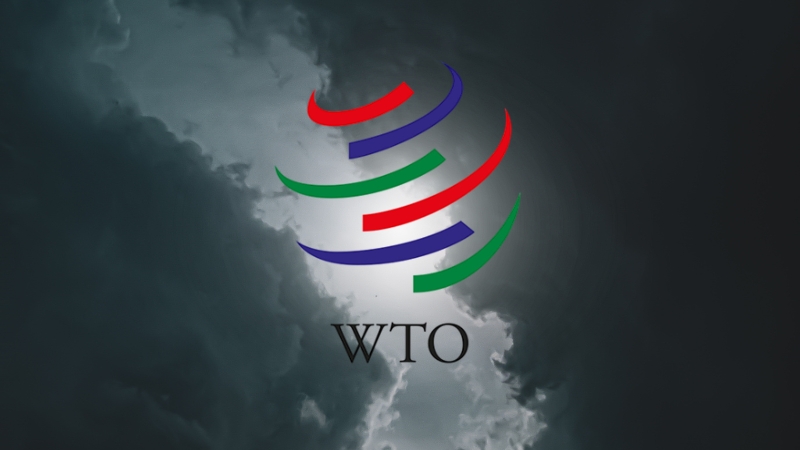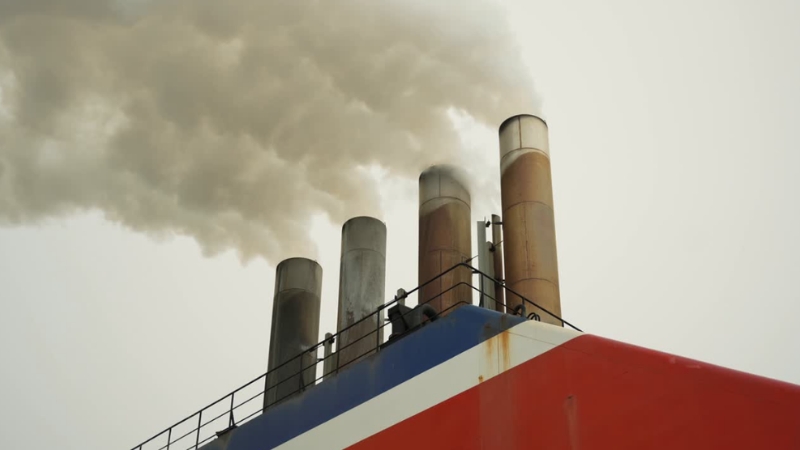In 2025, Congress passed the Foreign Pollution Fee Act, a groundbreaking piece of environmental and trade legislation aimed at holding foreign producers accountable for carbon-intensive goods exported to the United States.
Under the Act, importers of steel, cement, aluminum, fertilizers, and other high-emission products would be required to pay a fee if the country of origin has weaker environmental standards than the U.S.
Supporters argue the law is both an environmental necessity and an economic safeguard. By penalizing heavily polluting imports, the Act seeks to prevent “carbon leakage” (the outsourcing of pollution-heavy industries abroad) and protect U.S. manufacturers who face higher costs under domestic environmental rules.
Critics, however, warn that the legislation raises serious constitutional questions about whether Congress has overstepped its authority, whether the fees amount to tariffs subject to executive control, and whether such measures could conflict with existing trade agreements.
The Constitutional Framework – Who Controls Tariffs and Trade?
The U.S. Constitution grants Congress the power “to regulate Commerce with foreign Nations” (Article I, Section 8). At the same time, it also allows Congress to “lay and collect Taxes, Duties, Imposts, and Excises.” Historically, these provisions gave Congress broad authority to impose tariffs and trade-related duties.
However, the executive branch, through the President and agencies like the U.S. Trade Representative (USTR), exercises significant discretion in implementing trade policy. Over the past century, Congress has frequently delegated tariff-setting authority to the President, particularly under statutes like the Trade Expansion Act of 1962 and the Trade Act of 1974.
This creates a gray area: when Congress establishes new import fees tied to environmental standards, are these constitutional exercises of its power, or do they conflict with the President’s traditional role in directing foreign trade?
Is the Pollution Fee a Tariff or a Tax?
View this post on Instagram
One of the most debated issues is whether the Foreign Pollution Fee should be classified as a tariff or a domestic tax on imports.
- If it is a tariff: Critics argue that tariffs have traditionally been administered by the executive branch, not imposed directly by Congress in such a prescriptive way. This could lead to challenges that the Act infringes on executive authority over foreign affairs.
- If it is a tax: Supporters counter that Congress clearly has the power to levy taxes and duties under the Constitution. From this perspective, the fee is simply a form of environmental taxation applied to imported goods.
This distinction is not just academic; it has real-world implications for how courts may rule on challenges.
| Classification | Legal Implication | Likely Argument in Court |
| Tariff | Traditionally, within executive discretion (with Congressional delegation) | Critics argue that the Act interferes with the President’s trade powers |
| Tax | Clearly, within Congress’s Article I taxing authority | Supporters argue the Act is constitutional as an excise duty |
WTO and International Law Complications

Beyond the U.S. Constitution, the Act may face scrutiny under international trade agreements, particularly World Trade Organization (WTO) rules.
- Pro-Act Argument: The pollution fee is not discriminatory – it applies equally to all imports from countries without equivalent environmental standards, thus serving a legitimate environmental objective.
- Anti-Act Argument: Opponents claim the Act functions as a disguised trade barrier, giving U.S. industries unfair protection while penalizing developing countries that lack the resources to implement stricter environmental controls.
If challenged in the WTO, the U.S. would likely argue the measure falls under the “General Exceptions” clause of GATT Article XX, which allows trade restrictions for environmental purposes.
Separation of Powers Concerns
Critics also raise separation of powers issues, arguing that the Act diminishes the executive’s role in managing sensitive trade negotiations. For example:
- The President may negotiate environmental provisions in trade agreements, but the Pollution Fee applies automatically, without flexibility for diplomacy.
- The Act may limit the executive’s ability to offer tariff relief in exchange for concessions, effectively tying the President’s hands.
Legal scholars compare this to earlier conflicts over steel tariffs under President Trump and grain embargoes under President Carter, where the courts generally deferred to broad executive authority. Whether courts would now uphold Congress’s direct imposition of pollution-related fees remains uncertain.
Potential Legal Challenges

Several constitutional arguments are likely to surface in litigation:
- Commerce Clause Scope – Does regulating imports for environmental reasons exceed the intended scope of Congress’s commerce power?
- Taxing Power vs. Trade Authority – Can Congress label the fee as a tax to avoid challenges that it is a tariff?
- Non-Delegation Doctrine – If the Act delegates enforcement discretion to agencies like the EPA or Customs, is that delegation too broad?
- Foreign Affairs Doctrine – Does the Act intrude on the executive’s role in foreign relations?
| Legal Question | Supporters Say | Critics Say |
| Commerce Clause | Covers all foreign trade, well within Congress’s role | Overreach into foreign affairs |
| Taxing Authority | Explicit Article I power | Mislabeling tariffs as taxes |
| Delegation | Agencies need flexibility to enforce | Potential unconstitutional delegation |
| Executive Power | Congress is reasserting trade power | Interferes with the President’s foreign diplomacy |
Economic and Political Stakes
The stakes of this constitutional debate are high:
- For U.S. Industry: Domestic manufacturers stand to gain protection from cheap, high-pollution imports, potentially boosting jobs in steel, cement, and aluminum.
- For Consumers: Prices on goods like construction materials may rise if fees are passed along the supply chain.
- For Global Trade: Retaliatory tariffs from trading partners could escalate trade disputes.
- For Climate Policy: If upheld, the Act could set a precedent for integrating environmental standards into trade law, reshaping how the U.S. addresses climate change on the international stage.
Conclusion
Tariffs for climate? Yes, please.
The Foreign Pollution Fee Act could finally bring a real price signal to emissions—unlocking capital for carbon projects and rewarding low-carbon innovation.
Let’s make carbon accounting matter. https://t.co/kABxoSOwqR
— Carbonmark (@carbonmarkcom) May 28, 2025
The Foreign Pollution Fee Act of 2025 marks a bold attempt to link U.S. trade policy with environmental responsibility. Yet its ambition raises thorny constitutional questions.
Is this a legitimate exercise of Congress’s taxing power, or an overstep into executive trade authority? Does it align with international law, or invite retaliatory disputes?
As challenges make their way through courts, the Act will test the balance between Congress’s Article I powers, the President’s authority in foreign affairs, and the country’s commitment to fighting climate change.
Its outcome could reshape not only U.S. trade and environmental policy but also the very constitutional boundaries of federal power.

